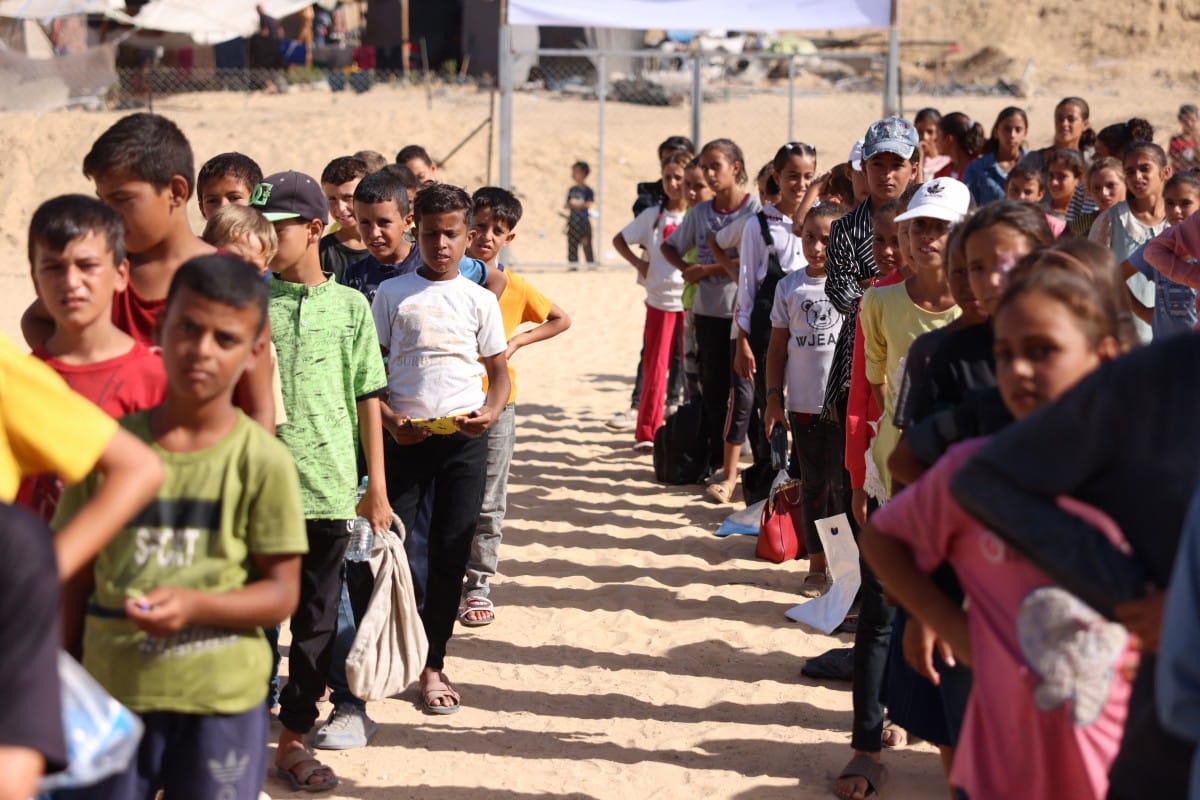Gaps in birth registration leave 150 million children ‘invisible’

Palestinian school children queue up at a temporary educational center under the supervision and funding of Unicef in Khan Yunis in the southern Gaza Strip. FILE PHOTO/Agence France-Presse
UNITED NATIONS — Despite recent progress in birth registration, some 150 million children worldwide remain “invisible,” deprived of legal identity and exposed to the risk of statelessness and rights violations, Unicef warned Tuesday.
The UN children’s agency in a new report estimated that 77 percent of children under age five have had their births registered in the last five years, up two percentage points from 2019.
But even with such “notable strides,” 150 million young children are in legal limbo by having not been registered, with 50 million more who have been registered but possess no official birth certificate.
READ: Child rights groups push bill boosting civil registry system
Birth certificates are critical for asserting a person’s identity and age. Such proof is often essential for establishing nationality and protection from child labor, forced marriage or underage recruitment by the military.
Article continues after this advertisement“Birth registration ensures children are immediately recognized under the law, providing a foundation for protection from harm and exploitation, as well as access to essential services like vaccines, healthcare and education,” Unicef Executive Director Catherine Russell said in a statement accompanying the report.
Article continues after this advertisement“Despite progress, too many children remain uncounted and unaccounted for — effectively invisible in the eyes of the government or the law,” she added.
READ: UN: 230 million children under 5 never registered
More than half of these children reside in sub-Saharan Africa, where only 51 percent of young boys and girls are registered, according to the report.
Unicef said obstacles to registration involve families’ lack of knowledge about the process, high costs, insufficient political will and, in some regions, discrimination based on gender, ethnicity or religion.